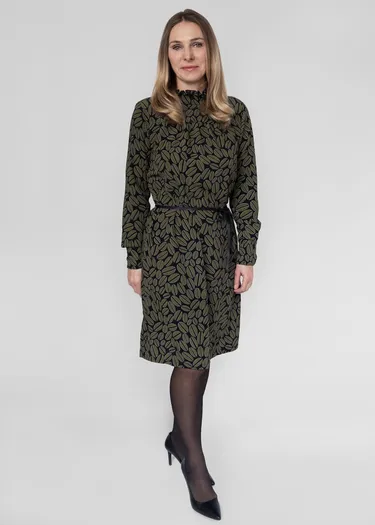Supreme Court of the Russian Federation Adopted Exception to the Principle of Interest in Challenging Those Trademark Registrations That Collide with Public Interest
The recent[MOU1] consideration of case No. СИП-819/2018[1]by the Judicial Panel for Economic Disputes of the Supreme Court of the Russian Federation (hereinafter the Supreme Court) was marked by a new position[MOU2] as follows. It is not always necessary to prove interest in challenging the registration of trademarks, and there is an exception from paragraph 2 of Article 1513 of the Civil Code of the Russian Federation (hereinafter the Civil Code), which is not mentioned in it.The ”ТРИ КЛЮЧА” wordmark No. 599143 was registered under the name of an individual entrepreneur, in relation to the goods of classes 32, 33 and services of сlass 43.A few months later, Rospatent received an opposition from a limited liability company (hereinafter the Opposer) against the granting of the legal protection for the wordmark. The Opposer argued that the registration of the wordmark was against public interest i.e. non-compliance with the registration requirements of sub-paragraph 2, paragraph 3 of Article 1483 of the Civil Code.According to the opposition, the Opposer already owned[MOU3] the same wordmark, which was used for the same goods and services with few exceptions, and the contested registration would create a situation of double ownership of the same trademark.The Opposer’s interest in the invalidation of the registration was explained by the earlier refusal of Rospatent to register the same trademark in the name of the Opposer for the same goods and services due to its confusing similarity with the two Company’s [MOU4] trademarks in question.Rospatent decided in favor of the Opposer and the registration was invalidated for the goods and services that were covered by the registration of the earlier identical trademark[MOU5] . The entrepreneur[MOU6] , wanting to keep the registration and believing that the decision of Rospatent violated his rights and legitimate interests, [MOU7] appealed to the Court for Intellectual Property Rights (hereinafter the CIPR) with a request to invalidate the decision and reinstate the registration.The case was heard in two judicial instances, generating opposite judicial acts[MOU8] , until it reached the Judicial Panel for Economic Disputes of the Supreme Court.The first decision of the CIPR denied the application; however, the cassation court overturned the decision and sent the case for a new trial.[MOU9] During the review[MOU10] of the appeal, the application[MOU11] was satisfied partially. It[MOU12] was upheld by the CIPR: The decision of Rospatent was recognized invalid, but only in respect of two classes and the registration was invalidated for the rest of the classes. The Applicant had not been able to confirm his interest in challenging [MOU13] the registration, as required by paragraph 2 of Article 1513 of the Civil Code.The Federal Service for Intellectual Property Rights [MOU14] did not agree with the reversal of its decision and filed a complaint with the Supreme Court.The Supreme Court found a substantial violation of the rules of substantive law in the retrial: The CIPR incorrectly defined the range of circumstances to be proved and as a result, the application erroneously proceeded to registration, albeit partially.The CIPR, formally guided by articles 1512 and 1513 of the Civil Code, considered that by challenging the registration of the trademark on the grounds being against public interest (sub-paragraph 2, paragraph 3 of Article 1483 of the Civil Code), the Opposer must first of all prove its interest.However, according to the Supreme Court, the definition of interest in relation to challenging the granting of legal protection for a trademark on such grounds should be interpreted as broadly as possible, as it is intended to protect the public interest rather than the private interest of a particular person, and prohibit unreasonable monopoly on trademarks.In its decision the Supreme Court said that the scope of recognition of the granting of legal protection of a trademark should not be made dependent on the confirmation of personal (actual) interest in respect of specific goods and services.At the same time, the Supreme Court recognized that there was indeed a collision with the public interest in this situation, since the legislation does not provide for the possibility of recognizing multiple exclusive rights in the same scope of legal protection[MOU15] .As the Supreme Court pointed out, this would contradict the absolute nature of the exclusive right and would lead to the impossibility of separating the trademark as an object of civil rights and the exclusive right to it.In its conclusion, the Supreme Court determined, considering the absence of the need to establish the interest of the Opposer as the applicant of the opposition, that the application for invalidation of Rospatent’s decision could not be granted. Thus, those goods and services that coincided with the relevant list of the opposing trademark were excluded from the scope of legal protection of the Applicant’s trademark.




